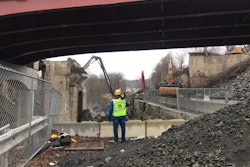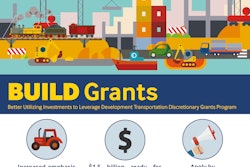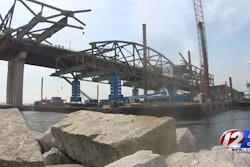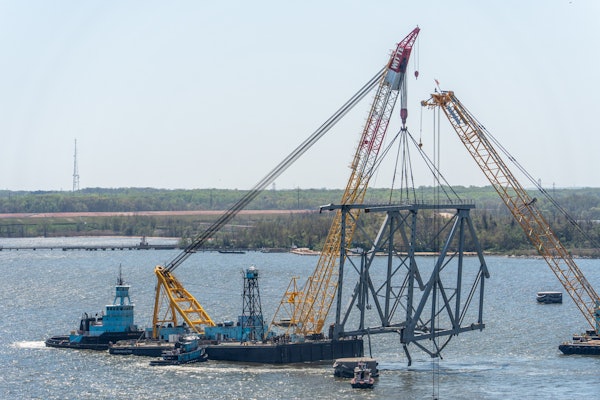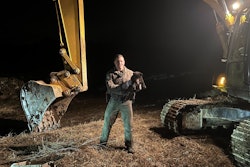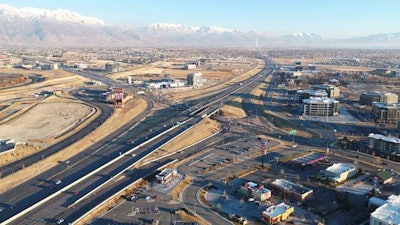 The I-15 Technology Corridor at Lehi, Utah, will be widened from four lanes to six in each direction.
The I-15 Technology Corridor at Lehi, Utah, will be widened from four lanes to six in each direction.Work is underway to widen the main artery in one of the fastest growing cities in the United States.
The area in and around Lehi, Utah, has undergone explosive growth since 2000. It has been dubbed “Silicon Slopes” as established and startup tech companies move to the area that is encompassed by Provo, Park City and Salt Lake City.
The widening of Interstate 15 from Lehi’s Main Street to State Route 92 has been named the state’s top road priority of 2018. On April 25, the governor and other dignitaries held a ceremonial groundbreaking for the expansion of the “I-15 Technology Corridor.” The project carries a $450 million price tag and a completion date of late 2020, according to the Utah Department of Transportation.
The stretch of freeway will be widened from four to six lanes in each direction. It is the last section of I-15 between Salt Lake City and Spanish Fork to be widened. The project also includes a new overpass at Triumph Boulevard and upgrades to the S.R. 92 and 2100 North interchanges, according to UDOT. Thirteen bridges will be replaced along the route, and bike-pedestrian paths will extend along new frontage roads.
The goal of the widened freeway is to relieve mounting traffic congestion in the area. Lehi has more than doubled in population to about 60,000 people since 2000 and is the fifth-fastest-growing city in the country, according to the city. Tech giants such as Microsoft, Adobe and eBay have a presence there, and a growing number of startups have flocked to the area.
“There has been a dynamic explosion of growth in this area of south Salt Lake City County,” Governor Gary Herbert said at the ground breaking.
He said projects like I-15 are needed to continue the growth and relieve congestion.
“We will have a hard time growing economically if we do not solve the problem of transportation,” he said.

